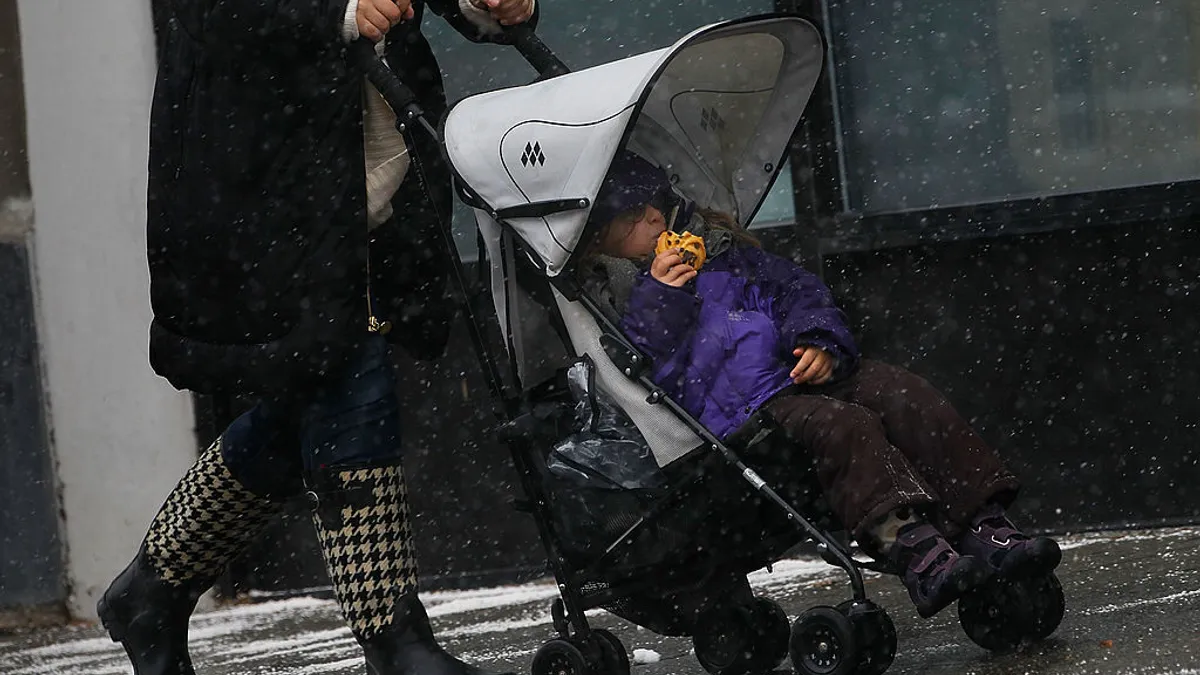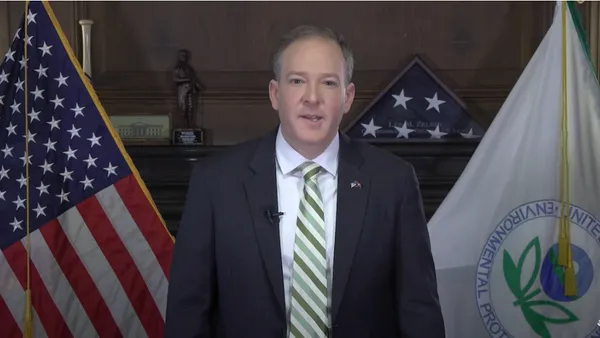Dive Brief:
- The District of Columbia will offer $900 a month in direct cash payments to 132 new and expectant mothers under a pilot program announced this month that's designed to reduce child poverty and improve maternal health outcomes.
- The $1.5 million program will provide direct cash assistance with no strings attached, meaning Washington, D.C. families can use it however they like. The program will be implemented by Washington-based nonprofit Martha’s Table, which ran a separate direct cash assistance program for 500 local families living at or below the poverty line during the COVID-19 pandemic.
- The pilot will launch in February 2022 and comes after the expiration of the expanded federal child tax credit. The federal program distributed more than $90 billion over six months directly to families in a program approved under the American Rescue Plan, one of the COVID-19 relief bills, but Congress has not yet renewed the program.
Dive Insight:
D.C. has experimented with flexible benefit programs, including a "shallow rental subsidy" kicked off in 2017 that offered families $7,200 at the start of the year and allowed families to spend as much as they wanted each month. A report on the first year of that program found that participants appreciated the flexibility and independence of the program – in contrast to more restrictive housing vouchers that governments typically distribute – as well as its less intense application process. The nonprofit Greater Washington Community Foundation also distributed $26 million in cash funds to 60,000 residents in the greater metro area during the COVID-19 pandemic.
The idea of direct cash transfers takes that flexibility even farther, offering families in need a fixed amount of money that can be spent on any expenses. The idea has been slowly catching on in cities and states as an alternative to more targeted government assistance programs or welfare that comes through as a tax benefit only at the time of filing. Stockton, California, was an early pioneer, distributing $500 a month to 125 people for two years in a universal basic income experiment. Los Angeles and Chicago are launching basic income pilots, with recipients chosen at random, and other nonprofits and governments have considered their own cash distribution programs.
"Families know best what they need. Cash resources can go to child care, rent, food, clothes, whatever it takes for a family to get by," said Christopher Wimer, co-director of the Columbia University School of Social Work's Center on Poverty and Social Policy. "Everybody’s in a different situation."
While researchers are still evaluating the pilot programs, early indications show that direct cash payments are a boon to families, even beyond traditional welfare or food stamp programs. Interviews with recipients of federal cash assistance conducted by Vicki Lens, a professor at Hunter College, City University of New York, found that parents used the money for things like clothes at the start of the school year, Christmas presents, rent or emergency savings fund.
"The financial decisions we saw were very sound, there was not a sense that people saw this as an opportunity for extravagance," Lens said.
The popularity of the federal child tax credit, restructured during the COVID-19 pandemic to function as monthly direct payments, has also been touted as proof that the concept is viable. The direct payments expired in December 2021; reauthorization has been proposed in Democrats’ Build Back Better budget reconciliation package but has stalled amid opposition from some moderates.
Mississippi-based nonprofit Springboard to Opportunities in 2018 launched one of the nation's first direct cash assistance programs, which was targeted at low-income, Black mothers. The Magnolia Mother’s Trust program has now supported three cohorts of women in Jackson, Mississippi, with $1,000 a month. According to a report from the program, it boosted the ability of mothers to pay bills on time from 27% to 83% and increased the percentage of mothers who could save money for emergencies from 40% to 88%.
"A big tenet of the program is basing it off of trust," said Sarah Stripp, managing director of Springboard to Opportunities. "Often when families are applying to other programs, they have to jump through hoops just to prove that they are deserving or poor enough or they may have work requirements. Our families feel trusted from the outset and that helped them feel confidence and support."
A report from the Urban Institute on the Community Foundation direct cash distributions found that the programs showed success in the speed that money was dispensed and the ability to reach a broader set of recipients by eliminating eligibility requirements. That, said Stripp, should motivate more governments to consider their own direct cash programs.
"The more pilots that are out there, the more proof there is that this concept works," said Stripp. "We hope they can work to create some systemic change. We want to change the social safety net to something that’s more centered in trust and dignity."










